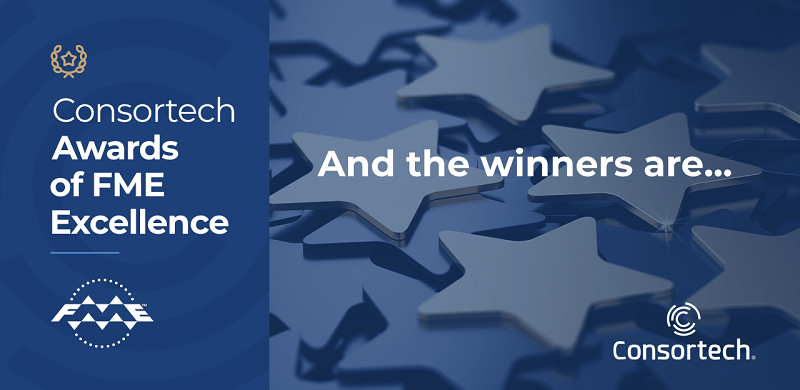The winners of the 2022 Awards of FME Excellence were announced on June 7, at a very special edition of the FME World Tour. Like the year before it, the 2022 edition was a resounding success, with over twenty project submissions. FME users greatly impressed us with their creativity and the usefulness of their solutions in boosting their organization’s geospatial performance.
Best Small Efficiency-Boosting Project
Prize awarded to the Town of Mono, Ontario
Automating parcel data updates into ArcGIS Online
Zdravko Jakop presented this project, which impressed the jury with its resourceful and surprisingly simple solution using only desktop and SaaS technologies—a smart, realistic approach considering the tools available to many small to medium municipal governments. This project also stood out in adding a mapping component to a kind of software used by all municipalities: real property and property tax management software.
Honourable mention to the City of Rimouski, Quebec
Winter night parking management
Daniel Alvarez used FME to integrate the City’s multiple systems into the GIS database in order to publish an interactive map that can be used by residents and other stakeholders to view information about zoning and land use. The jury was impressed by the smart ways in which the project used FME, but especially by how much ROI the project got on such little technical effort. Another point of interest was how much the GIS community could learn from the project, especially in terms of centralizing information to make municipal governments more transparent.
Best Automation Project
Prize awarded to Public Services and Procurement Canada
Automating ticket management for national underground infrastructure
For this project, Philippe Palmer and Jean-François Leboeuf fully automated a critical process in protecting underground infrastructure. What convinced the jury was the range of technologies used (FME, FME Server, ArcGIS, Gallery App), how the solution can adapt to a range of input formats (each province’s One Call service uses its own format), and how it does all that with an impressive ROI: about 150 hours of work went into generating recurring gains of at least 400 hours a year.
Honourable mention to the City of Riviere-du-Loup, Quebec
Automating intervention plan management
This project, submitted by Jérôme Guimont, tackles an issue all Quebec municipalities know well: creating intervention plans. Intervention plans are a key part of prioritizing work to be done on a city’s strategic assets, such as the water system, sewer system and roads. The Riviére-du-Loup government wanted to redesign and optimize its process, and that is where FME came in.
Best Outside the Box Project
Prize awarded to the City of Longueuil, Quebec
Monitoring street lighting conversion to LED
Submitted by François Filion-Rouillier, this outside-the-box project made a great impression on the members of the jury—some even remarked they wouldn’t have thought of the idea themselves! We like that, besides being markedly original, the project integrates a great variety of technologies and that the automation developed for processing unique QR codes adds to the GIS by integrating the information in the Excel file specific to each street light. In addition, this new technique can be reused in future projects in similar contexts, including for processing data flows from the Internet of Things (IoT).
Honourable mention to the City of Montreal, Quebec
Replacement of a zoning mapping application with FME
This project, submitted by Thierry Belou, truly goes off the beaten path by using FME as a permanent component in a new mapping application to replace a discontinued commercial solution (Intergraph MGE). This is a major project, in that it generates the maps that are used for granting permits worth several million dollars a year. The jury liked how the solution was entirely developed with FME Desktop, which the City already used, saving the municipality from having to purchase a new, expensive commercial solution.
Consortech would like to congratulate all recipients and thank all the organizations that submitted their projects this year. The sheer diversity of the submissions we received is testament to how, especially coupled with ArcGIS, the sky truly is the limit for what FME can do.
We wholeheartedly hope these projects will inspire your organization to improve its geospatial performance, either by making low-value-added tasks more efficient or by providing your customers and local residents with exciting new possibilities.



